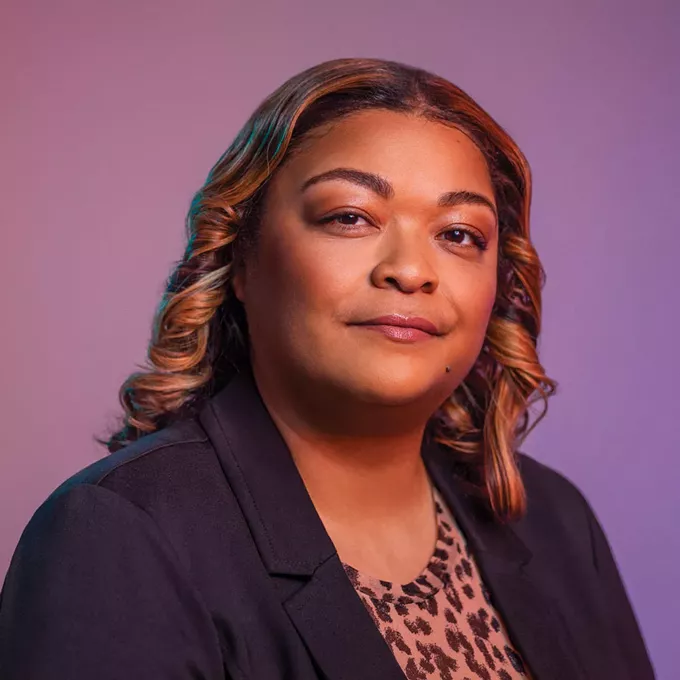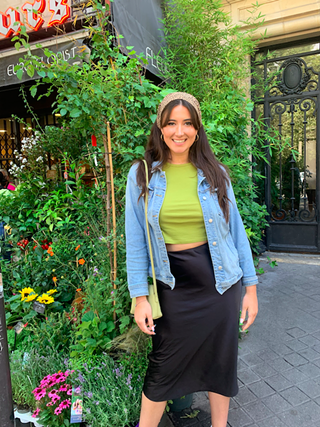Regina Bradley is a hip-hop scholar who teaches at Kennesaw State University. She’s also the author of the books Chronicling Stankonia and Boondock Kollage and cohosts a podcast, Bottom of the Map. She will be in Tucson to discuss Southern hip hop in a talk at the UA Poetry Center presented by the College of Humanities, Africana Studies and AZ Humanities. The free talk, “Sitting on Zora’s Porch: Notes from a Black Girl in the Hip Hop South,” is at 6 p.m. Tuesday, Feb. 15 at the UA Poetry Center, 1508 E. Helen St.
You’re coming to the UA Poetry Center. What will you be talking about?
I’ll be reading excerpts from my current book-in-progress Sitting on Zora’s Porch and talking about the significant impact of hip-hop on understanding contemporary southern Black life and culture in the United States.
There’s so much uproar in Republican politics over critical race theory and efforts to ban teaching it. What do you think when you hear politicians talking about CRT?
Honestly, I wish they would take the time to understand what it is and not use it to derail necessary conversations about race and identity in the U.S. Ignoring race will not make it go away, let alone solve the problems our country currently faces.
Your podcast Bottom of the Map (which is so clever and freaking cool!) promotes raw and unfiltered content. In your TED Talk, “The Mountaintop Ain’t Flat,” you talk about the antebellum era and how it romanticized the South with narratives similar to Gone With the Wind. What do many people misunderstand about that antebellum era?
Thanks for your kind words about the podcast! Southern hip-hop is raw and unfiltered, our podcast tries to mirror that same tradition. As far as the interest in antebellum culture: The beauty of big houses, well-manicured grounds, and even fashion that draw people to plantations to celebrate their milestone events does not outshine the ugliness of the labor behind why plantations and antebellum culture lure in an audience in the first place. The misunderstanding is, “How can a place this beautiful still hold so much pain?” Because aesthetic appreciation does not outweigh historical truths and people don’t want to hold slavery and antiquated Southern beauty in tandem.
It is clear that your passion is to speak your truth through creative outlets like Bottom of the Map, “The Mountaintop Ain’t Flat,” your published work like Chronicling Stankonia and Boondock Kollage. What inspired you to pursue this path and what challenges did you face?
The path chose me! I was made increasingly aware that there were few discussions of region in research areas that I love: hip-hop studies and pop culture studies. I was reading books and articles and opinions of people who tried to use their non-Southern experiences to contextualize the South and there was a glaring disconnect. I grew increasingly frustrated that the American South, especially Black communities in it, were altogether erased or underappreciated from conversations about modern American life and culture. I wanted to highlight the complexity of race and region outside of people’s comfort zones and expectations of what southernness can and should look like and sound like.
Black female hip-hop artists have a platform to speak their reality through lyrics and rap in 2022. What is your take on women rappers and women hip-hop artists from the South in 2022’s music industry, including Meg, Big Latto, Renni Rucci, and Lizzo? What kinds of feminist messages are coming across from these women?
I love it. I absolutely love it. They are forcing people to have more real and less-than-polite conversations about sexual agency, self-autonomy and Black women. They are pushing back against the comfort of conservative sexual respectability that dictates definitions of Southern black womanhood and girlhood. For real. I’m here for it.
What does moving through history in hip-hop look like for the South? How can it bridge the American Black South to the present?
In my book Chronicling Stankonia, I talk about how younger generations of Black southerners use hip-hop to move away from the lore of the Civil Rights Movement. What I mean here is that hip-hop makes room for us to acknowledge the efforts and work of previous generations of southern Black folks while not pretending that everything idealistically worked out. Southern hip-hop doesn’t shy away from questions of class and upward mobility. It doesn’t shy away from questions of literacy. I say that Southern hip-hop recognizes that Dr. King’s dream is real but the “mountaintop ain’t flat.” Young Southerners are still figuring out what “making it” means in the shadow of the Civil Rights Movement and hip-hop is the soundtrack and blueprint.
You’re from Georgia. Can you tell me a few major ways Atlanta has changed from 1995 to 2022 in regards to the music industry? How do you see the Southern music industry moving forward from here?
In 1995, Atlanta was on the cusp of becoming an internationally recognized Olympic city and its culture scene was equally ready to explode. I want to point out that Atlanta has always had a strong music scene, especially in the 1970s and 1980s with funk music. When OutKast comes out with Southernplayalisticadillacmuzik in 1994, they showed Atlanta’s potential as a hip-hop city. It was fertile ground for experimentation with musical genres and production. Further, with the success of multiple genres of artists—from Usher and TLC to OutKast at LaFace Records and Jermaine Dupri’s slate of artists at So So Def—Atlanta was open for business as a music powerhouse. While I am hesitant to speak authoritatively on more current music, I can say that you cannot address the direction of Atlanta’s music industry without recognizing social media and digital media’s influence. The internet has completely changed the game for who and what can be considered “Southern” rap. I also think that there is a more relaxed expectation of having to represent the South than there was 20-30 years ago because of the immediate access to music content we have with the internet. It’s more of a performance choice than a distinctive feature of a hip-hop identity.
You’ve said OutKast’s phrase “The South got somethin to say” has stayed close to you for years. What does it mean for you today?
Three Stacks’ phrase resonates today because there is a kind of southern Black renaissance taking place in pop culture—Southerners are telling their stories, unapologetically calling the South home, and stepping away from stereotypical representations of southernness. I think we’re in the next phase of the original rallying cry: the south STILL got something to say. We are starting to control our own narrative. Get with it or get left behind!
Do you feel your Twitter and Instagram accounts benefit your push towards truth more than lessen the opportunity for truth?
They are a benefit because social media puts me in community with folks having similar conversations. Truth and change doesn’t happen in a vacuum.
You were on fellowship as an assistant professor at Harvard in spring 2016, which is when Beyoncé performed at the Super Bowl. Can you describe how you felt this year in terms of growth and being a successful woman?
Beyoncé got a fan in me in 2016 because she used her platform to bring attention to her evolving voice, her Blackness, and her womanhood that people couldn’t strip away from the performance itself. Beyoncé impacted me in a profound way to be willing to stand in my truth as a Southern Black womanhood and use my creativity to do so.
What made you want to teach?
I come from a family of educators, so I guess teaching has always been in my blood. I knew I wanted to teach when I was a teaching assistant in graduate school back in 2006. I loved steering conversations about Black culture with students and engaging with their thoughts and experiences. I still hold to that passion in how I manage my classroom at KSU—so many of those students remind me of myself when I was in undergrad at Albany State University. It is a privilege to help students, especially Black students, recognize their voices and encourage them to ask questions about the world around them.
Fun question: What are your favorite artists, groups and bands of all time? What are your favorite artist, group, and band today? Why?
Believe it or not, I am a HUGE R&B fan! Dru Hill and 112 are my favorite R&B groups ever. I also loved Ginuwine, Usher, Ideal, Brandy, Total, and TLC. Still working my way through a lot of today’s R&B artists, but I really rock with Giveon, DVSN, Miguel and what I joke is the R&B pronouns: H.E.R., Sir, and They. My godson is a big R&B fan, so he tells me who to listen to, LOL. Some of my all-time hip-hop favorites are Missy Elliott, Jeezy, DMX, and Jay-Z. Current hip hop artists I love are Big K.R.I.T., A$AP Ferg, Freddie Gibbs, Meghan Thee Stallion, Yo Gotti and 2 Chainz.









